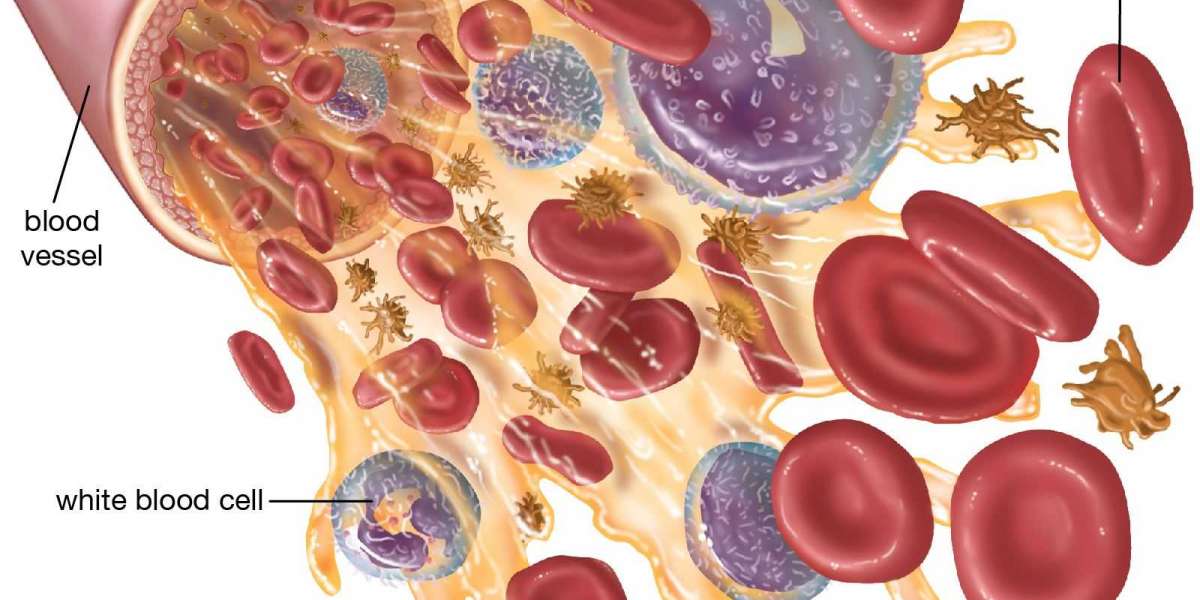White blood cells (WBCs), or leukocytes, are integral components of the body's immune system, serving as the primary defense against infections and foreign invaders. Despite comprising only about 1% of the blood's volume, their impact on health is profound.
Understanding White Blood Cells
White blood cells are produced in the bone marrow and circulate through the bloodstream and lymphatic system. Their primary function is to identify and combat pathogens such as bacteria, viruses, fungi, and parasites. They also play a crucial role in recognizing and eliminating cancerous cells and in mediating allergic responses.
Types of White Blood Cells and Their Functions
White blood cells are categorized into several types, each with specialized functions
Neutrophils: These are the most abundant type of WBCs and serve as the body's first line of defense against bacterial infections. They rapidly migrate to infection sites, engulf pathogens, and release enzymes to neutralize them.
Lymphocytes: Comprising T cells, B cells, and natural killer (NK) cells, lymphocytes are pivotal in adaptive immunity. T cells help regulate immune responses and directly attack infected cells, while B cells produce antibodies that neutralize pathogens. NK cells target and destroy virus infected and tumor cells.
Monocytes: These cells differentiate into macrophages and dendritic cells upon migrating into tissues. Macrophages phagocytize pathogens and dead cells, while dendritic cells present antigens to T cells, initiating adaptive immune responses.
Eosinophils: Primarily involved in combating parasitic infections and mediating allergic reactions, eosinophils release cytotoxic proteins to eliminate pathogens.
Basophils: The least common type of WBCs, basophils release histamine and other mediators during allergic responses, contributing to inflammation and the recruitment of other immune cells.
Mechanisms of Immune Defense
White blood cells employ various strategies to protect the body
Phagocytosis: Certain WBCs, like neutrophils and macrophages, engulf and digest pathogens and debris.
Antibody Production: B cells produce antibodies that specifically bind to antigens on pathogens, neutralizing them or marking them for destruction by other immune cells.
Cytotoxicity: T cells and NK cells recognize and destroy infected or cancerous cells by inducing apoptosis.
Inflammation: Basophils and eosinophils release substances that promote inflammation, enhancing blood flow and attracting other immune cells to infection sites.
Maintaining Optimal White Blood Cell Function
A balanced white blood cell count is essential for effective immune function. Both elevated and diminished levels can indicate underlying health issues:
Leukocytosis: An increased WBC count may suggest infections, inflammation, or hematologic disorders like leukemia.
Leukopenia: A decreased WBC count can result from conditions such as bone marrow disorders, autoimmune diseases, or the effects of chemotherapy, leading to heightened susceptibility to infections.
Regular health check-ups and blood tests can help monitor WBC levels and ensure the immune system's proper functioning.
The Role of Medications in Supporting Immune Health
In certain medical scenarios, medications like antibiotics and immunotherapies are employed to support the immune system. For instance, Ceftriaxone is a broad-spectrum antibiotic used to treat various bacterial infections. While antibiotics do not directly affect white blood cell production, they assist in reducing the bacterial load, allowing the immune system to function more effectively.
The ceftriaxone injection distributors play a crucial role in ensuring the availability of this medication to healthcare facilities, enabling timely treatment of infections and supporting overall immune health.
Conclusion
White blood cells are indispensable to the immune system, offering protection against a myriad of pathogens and contributing to the body's overall health. Understanding their types, functions, and the importance of maintaining their optimal levels can empower individuals to take proactive steps in safeguarding their health. Regular monitoring, a balanced diet rich in essential nutrients, and appropriate medical interventions when necessary can help maintain a robust immune system, ensuring resilience against infections and diseases.







